Developer supersizes to $250M apartment project by Metrorail near Coral Gables
Seizing on an expanded Miami-Dade County effort to promote dense housing construction around Metrorail stations, developer Shoma Group wants to double the height and scale of an already massive project it’s been planning on a wedge of land squeezed between Bird Road, the Metrorail tracks and two major intersections along U.S. 1 in Miami.
The revised Shoma One project would cost $250 million and shoehorn a pair of 40-story towers with at least 740 apartments, a 700-car garage and a two-story food hall on a slender lot just steps from the intersections of Bird, U.S. 1 and Douglas Road and the highway. The site, at 3650 Bird Road, is occupied by Deel Volkswagen’s used-car, parts and automobile-maintenance shops, which will be moving across the street.
Shoma bought the Deel property for $34 million in 2022 and had previously announced it would build a pair of 18-story apartment towers on the site, which sits along the path of the planned Underline urban park and trail and a block from the Douglas Road Metrorail Station.
That changed after the Miami-Dade commission last month approved an expansion of special zoning districts that supersede local municipal controls on height and density around transit stations to encourage developers to build badly needed housing. As a result, the old Deel property, which sits in the city of Miami, now falls under the county’s Douglas Road station “rapid-transit zone” and its far more generous development rules.
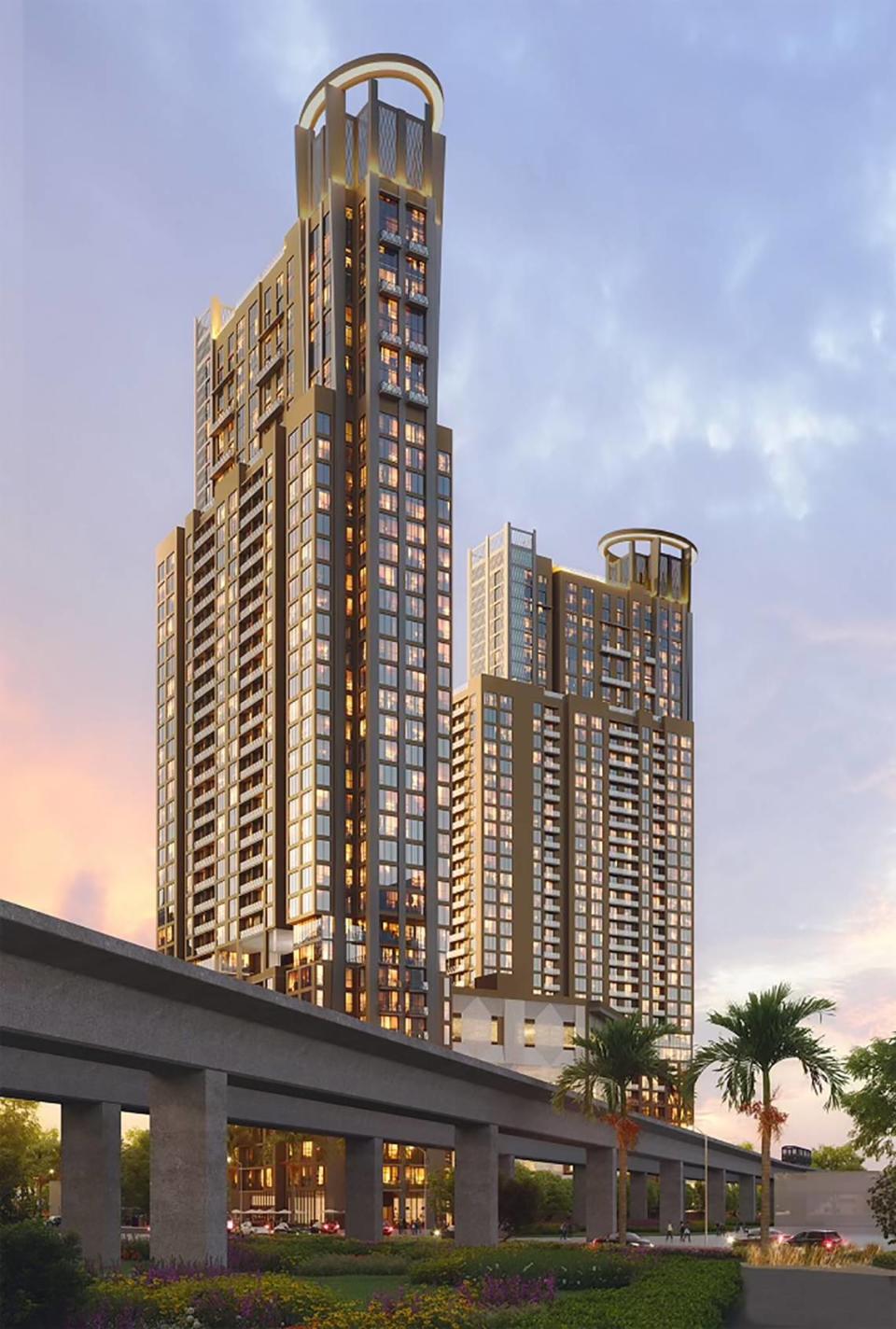
Shoma’s proposal comes as the state and Miami-Dade have been pushing to relieve a shortage of housing, especially affordable housing, by expanding residential development and density. Critics say one cause of the crunch has been the use by some municipalities of strict zoning rules to limit density and constrain construction of condos and apartments.
Shoma Group CEO Masoud Shojaee said he decided to “maximize” his planned development to take advantage of the county rules for the zone, which allow towers of up to 40 stories. Developer 13th Floor Investments has used the same rules to build a pair of towers on the Douglas Road station property, with two more planned. One completed tower, Cascade at Link, at 37 stories, is far taller than anything miles around and visible from homes in West Coconut Grove to neighboring Coral Gables.
Shojaee touts the Shoma One project’s location on the future Underline trail and a short stroll from the Metrorail station, saying it meets the county’s goal of putting more residents at transit’s doorstep and reducing auto dependency by making it easier for people to walk, bike or take the train for everyday activities.
Under the rapid transit zone rules, Shoma would also set aside 12.5% of apartments — the precise number of total units is not yet decided — as workforce housing, in exchange for approval to build extra density. That is defined as housing affordable to households making up to 20% over Miami-Dade’s median income, which stands at $74,700.
By packing in residential density and adding public amenities like the food hall, a shared-office center and a dog park, the project will become a focal point of activity along the Underline and a new community emerging around the Douglas Road metro station, Shojaee said.
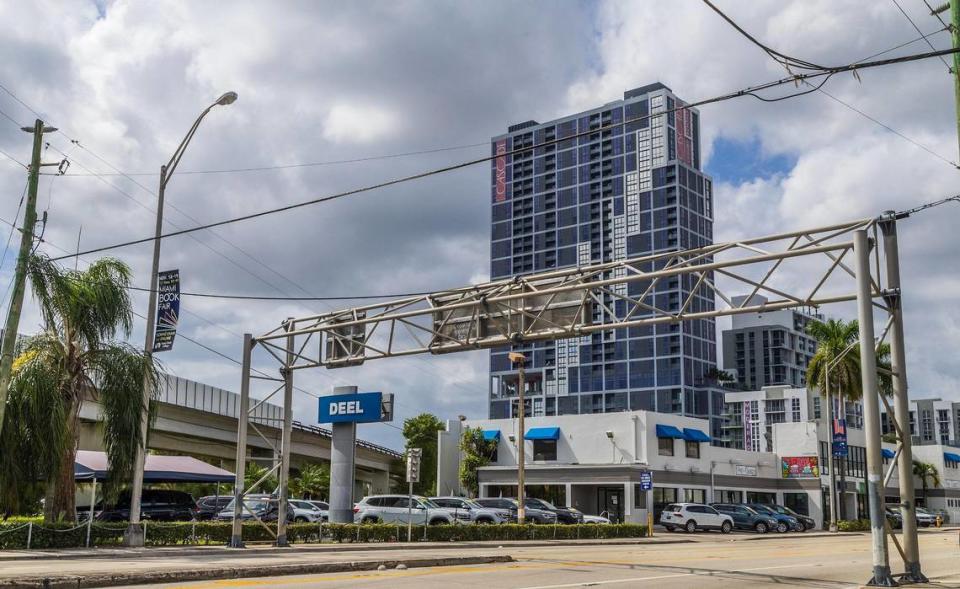
“Its not really just going big, it’s that Miami-Dade is going through an evolution,” the developer said. “You want to encourage people to have access to public transportation. There are not that many properties along the Metrorail. You have to take those opportunities, to create that feeling of the big city like New York. Here it’s not easy to walk like in New York.
“But they are spending a ton of money on the Underline. Imagine Saturday morning, you’re out walking, people are playing. They order drinks, order food, they hang out. That is so crucial. You are going to use your car less. It’s new lifestyle that you are creating.”
At the same time, however, Shojaee has also opted not to use exceptions that allow developers in such transit zones to drastically reduce the amount of required parking. The Shoma One project calls for a substantial 700 parking spaces. Planning experts have said availability of parking encourages driving.
The spot where the Shoma project will rise is wedged between two major intersections, at U.S. 1 with Bird and Douglas roads, that are already clogged with cars during much of the day. Shojaee concedes it will have an impact on traffic. But he defended the decision, saying it’s still necessary to provide parking for residents and businesses for a development to succeed, and that people will have several alternatives for getting around.
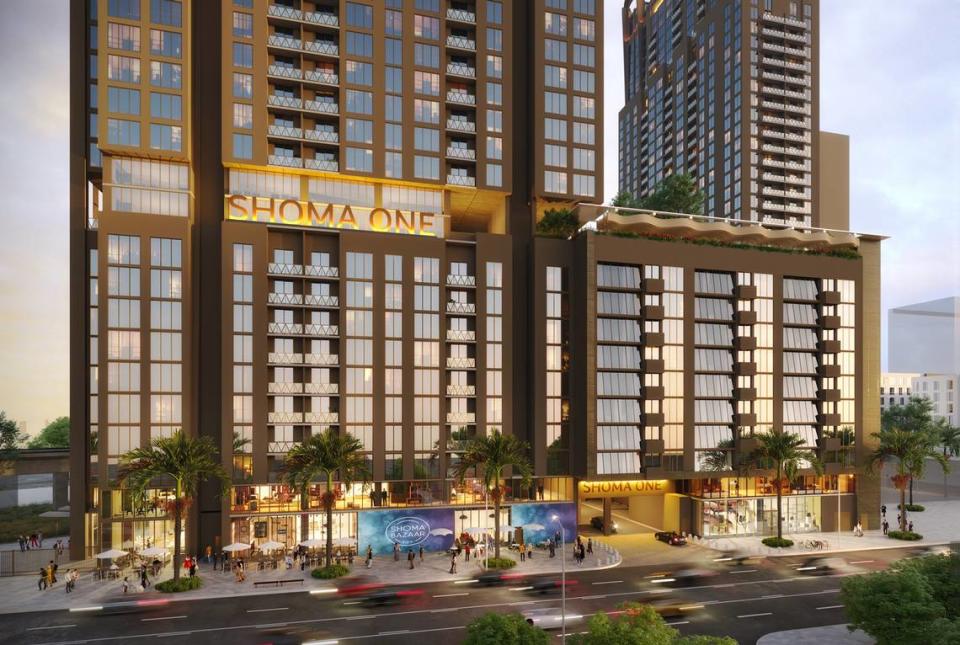
“I like to have a lot of parking just in case. Still, there is a need,” he said. “Miami is growing, and if you have an influx of people, unless you want to close the doors, any project obviously has impacts, no matter the location. But we have the benefit of having a Metrorail station next to us. And people can use that.”
The county commission has been gradually expanding rapid-transit zones around Metrorail and Metromover stations inside Miami’s boundaries, drawing opposition from city officials who contend the loosening is producing development in some areas that’s way out of scale with surrounding neighborhoods. Under the county charter, though, the Miami-Dade commission has authority to override municipal zoning rules.
In similar fashion, the Florida legislature has approved several developer-friendly preemption bills that also override local zoning and environmental rules. One that has proven especially controversial is this year’s Live Local Act, which overrides zoning limits in commercial zones to promote affordable housing development. The cities of Doral, Miami Beach and Hollywood have pushed back against developers using the act to propose supersized projects in areas like Doral Boulevard and Ocean Drive’s historic Art Deco district.
In the case of the Shoma proposal for Bird Road, the property was added to the Douglas Road station rapid-transit zone in September, along with other properties, at the request of Miami-Dade Commissioner Raquel Regalado.
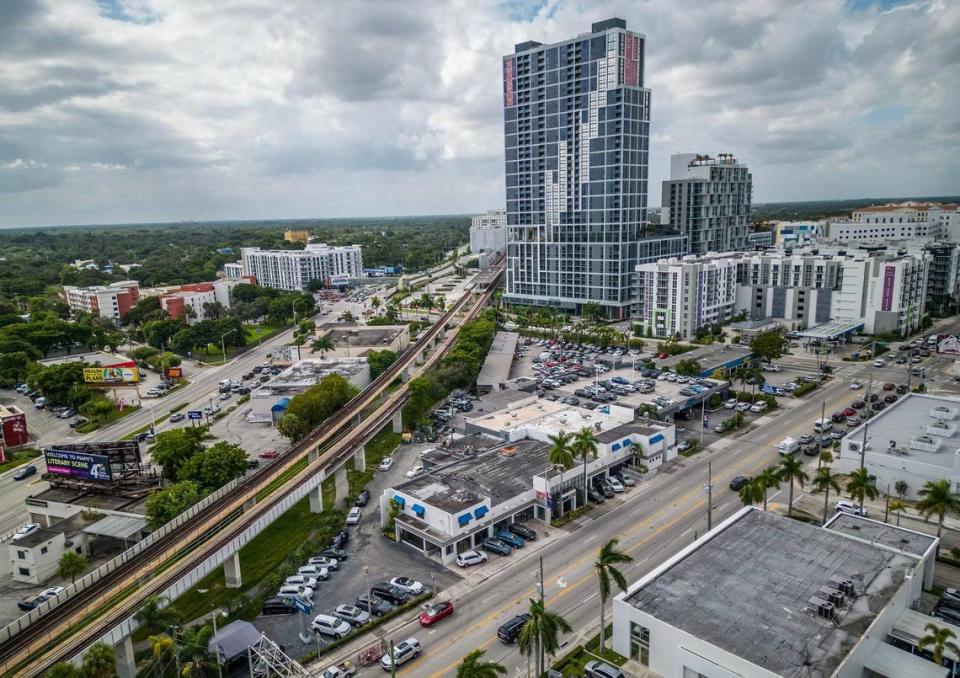
Shoma’s Shojaee said he is simply giving the county what it asked for. Shoma has not yet submitted a plan for county review, but will do so soon, he said.
A spokeswoman for the county’s Department of Regulatory and Environment Resources said planners can’t analyze the Shoma project’s effects on the area until the new plan is submitted. If the plan does meet existing zoning rules, it’s reviewed and approved by county planners without a public hearing. If it requires a change in land-use designation, say from industrial to residential and commercial, that could require a vote by the county commission.
Shoma’s project will be jam-packed with amenities to lure renters, including not just the usual gym and pool amenity deck, but also a theater and a kids’ splash fountain. Apartments will range from studios to three bedrooms and expansive penthouse suites.
It will also incorporate the company’s third Shoma Bazaar, after the original 15-stall version in Doral and a planned second one at a Shoma residential project that is nearing completion in Hialeah.
Shojaee is also trying to distinguish Shoma One with architectural flash — a “halo” over each tower that will be illuminated after dark. It’s part of a design by architects Bermello Ajamil and Partners, based a few blocks away over the city line in Coral Gables, that Shojaee said pointedly seeks to up the design ante for the burgeoning area.
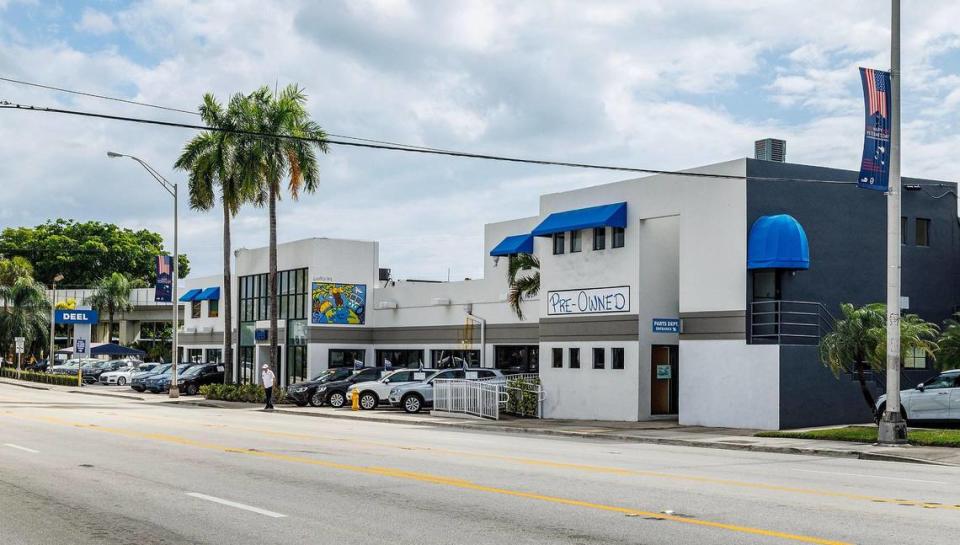
“We have worked with them before, and they transferred our ideas to the blueprint really well,” he said. “I thought, if I’m doing this concept, I want to have something that is different, I want to get the feeling of say, New York. What I noticed is that most of the projects, pretty much they are the same. There is no differentiation. There is not much character to it.”
Shojaee puts the estimated cost of Shoma One at a quarter billion dollars. He hopes to break ground on the first tower in July or August of 2024, with construction taking two to three years.

